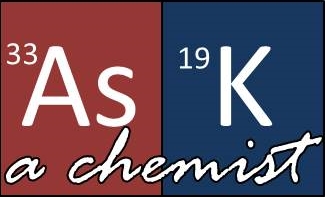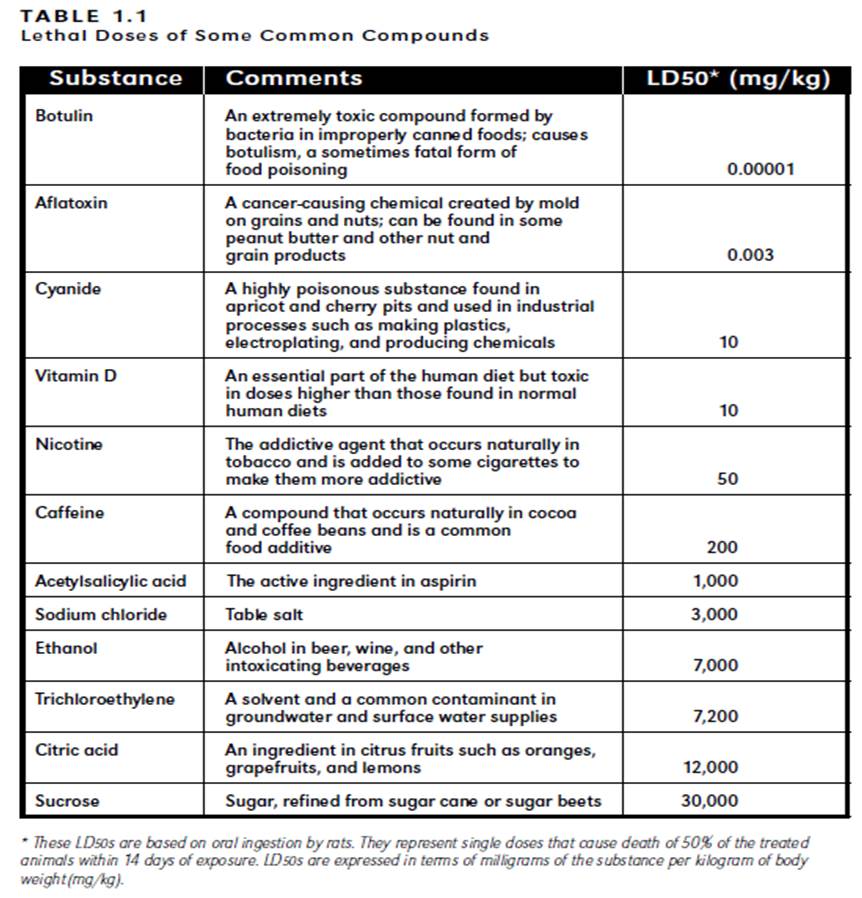#AskAchemist: Poison. Not the band. Or the Bell Biv DeVoe song.

In this installment of #AskAchemist, we’ll be talking about a favorite of mine…

No, not Idris Elba.
@DrRubidium What is a poison? How is it defined by chemists? #AskAChemist
— Will Robertson (@anthrowill) April 9, 2015
Poisons! I love talking about poisons. Not because I’m some sort of supervillain, but because poisons highlight the complexity of chemistry. And biology. And biochemistry!

You can probably name some poisons. Cyanide, arsenic, strychnine…. and caffeine, vitamin C, and water…

Yep, no chemicals are perfectly safe. Theophrastus Bombastus von Hohenheim, known to his friends as “TB von H”*, broke it down for us back in the 16th century.
All substances are poisons: there is none which is not a poison. The right dose differentiates a poison and a remedy. [quote from here]
Or, “the dose makes the poison”. Morning 5 oz cup of coffee? That level of caffeine (60-150 mg) is probably okay**. So, how much caffeine would kill somebody? Well, perhaps the best answer is the LD50. To borrow from the EPA…
An LD50 is a standard measurement of acute toxicity that is stated in milligrams (mg) of [chemical] per kilogram (kg) of body weight. An LD50 represents the individual dose required to kill 50 percent of a population of test animals (e.g., rats, fish, mice, cockroaches). Because LD50 values are standard measurements, it is possible to compare relative toxicities among [chemicals]. The lower the LD50 dose, the more toxic the [chemical].
Below is a list of LD50 values for a diverse array of chemicals from Chapter 1 ‘The Dose Makes The Poison‘ of the book Assessing Toxic Risk by Nancy M. Trautmann.
Now that’s a range of chemicals and LD50 values! Notice the fine print? RATS! These rodents are good human stand-ins. Notice anything else? Oral! The toxicity of a chemical is related to route of exposure (inhalation, skin absorption, ingestion, and injection). A person’s personal medical history/state will also play a role.

Dose, route, personal health history… but where is THE definition?! Here’s one from MedLinePlus, a service of the NIH’s US National Library of Medicine.
A poison is any substance that is harmful to your body. You might swallow it, inhale it, inject it, or absorb it through your skin. Any substance can be poisonous if too much is taken. Poisons can include
- Prescription or over-the-counter medicines taken in doses that are too high
- Overdoses of illegal drugs
- Carbon monoxide from gas appliances
- Household products, such as laundry powder or furniture polish
- Pesticides
- Indoor or outdoor plants
- Metals such as lead and mercury
The effects of poisoning range from short-term illness to brain damage, coma, and death. To prevent poisoning it is important to use and store products exactly as their labels say. Keep dangerous products where children can’t get to them. Treatment for poisoning depends on the type of poison. If you suspect someone has been poisoned, call your local poison control center right away. [excerpt from here]
A poison can be any chemical given the right (wrong?) dose and exposure route. Plus, the health of the unlucky person exposed. And, no, you don’t have to DIE for that chemical to be a poison. It’s about harm – headache, tummy ache, elbow ache, vomiting, diarrhea, sudden desire to listen to Nickelback^. Depending on the chemical, there can be a big range of “harm” from the bit-of-a-nuisance to wishing-for-death to actually dead.
We’re chemicals. We need chemicals. We’re surrounded by chemicals. The best we can do for safety is look at the scientific evidence, to a good ol’ cost vs. benefit analysis, and to stick to the teeny-to-tiny harm side of things.

___________
*”TB von H” is not historically factual moniker. “Paracelsus”, however, totally is.
**caffeine is a drug and drugs can affect different people differently.
^This seems unlikely.
___________
Featured image made by the author in PowerPoint
Idris Elba gif from tumblr
Bradley Cooper gif from collegetimes
Jensen Ackles gif from one.org
Aziz Ansari gif from gifsec
Bell Biv DeVoe gif from tumblr






I remember when I was first told vitamin D was deadlier than nicotine, and it’s still counterintuitive to me.
There is a podcast called “The Poisoncast” that discusses how poisons kill you in extreme detail. Definitely worth checking out.